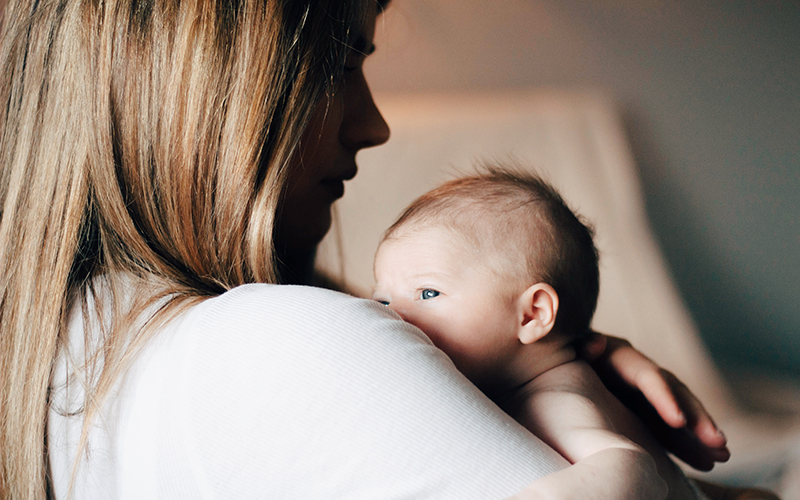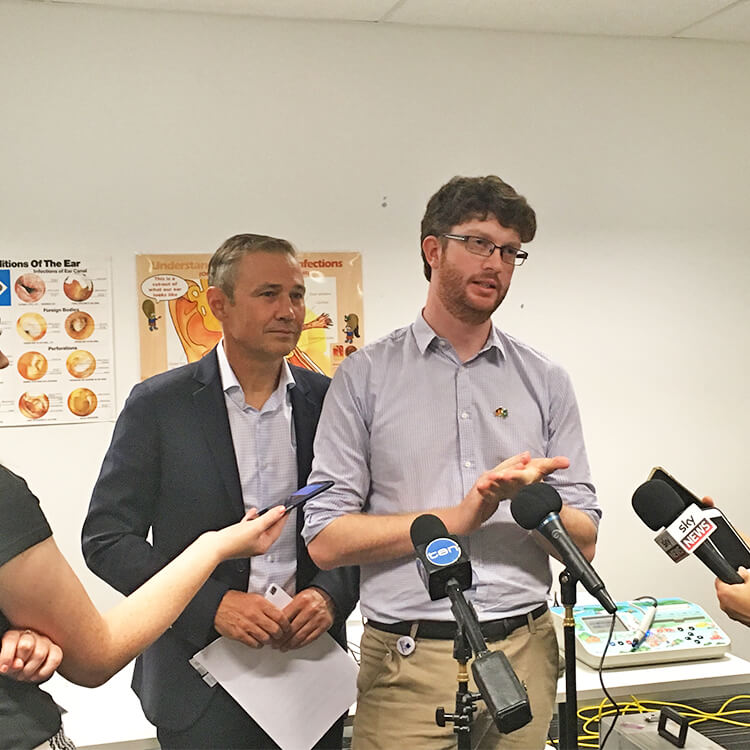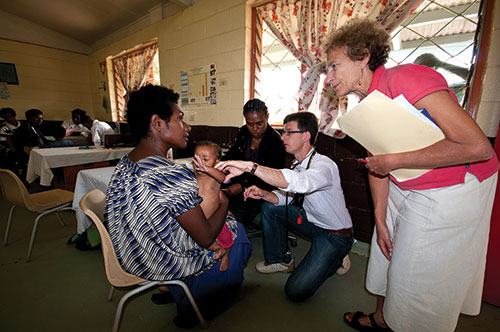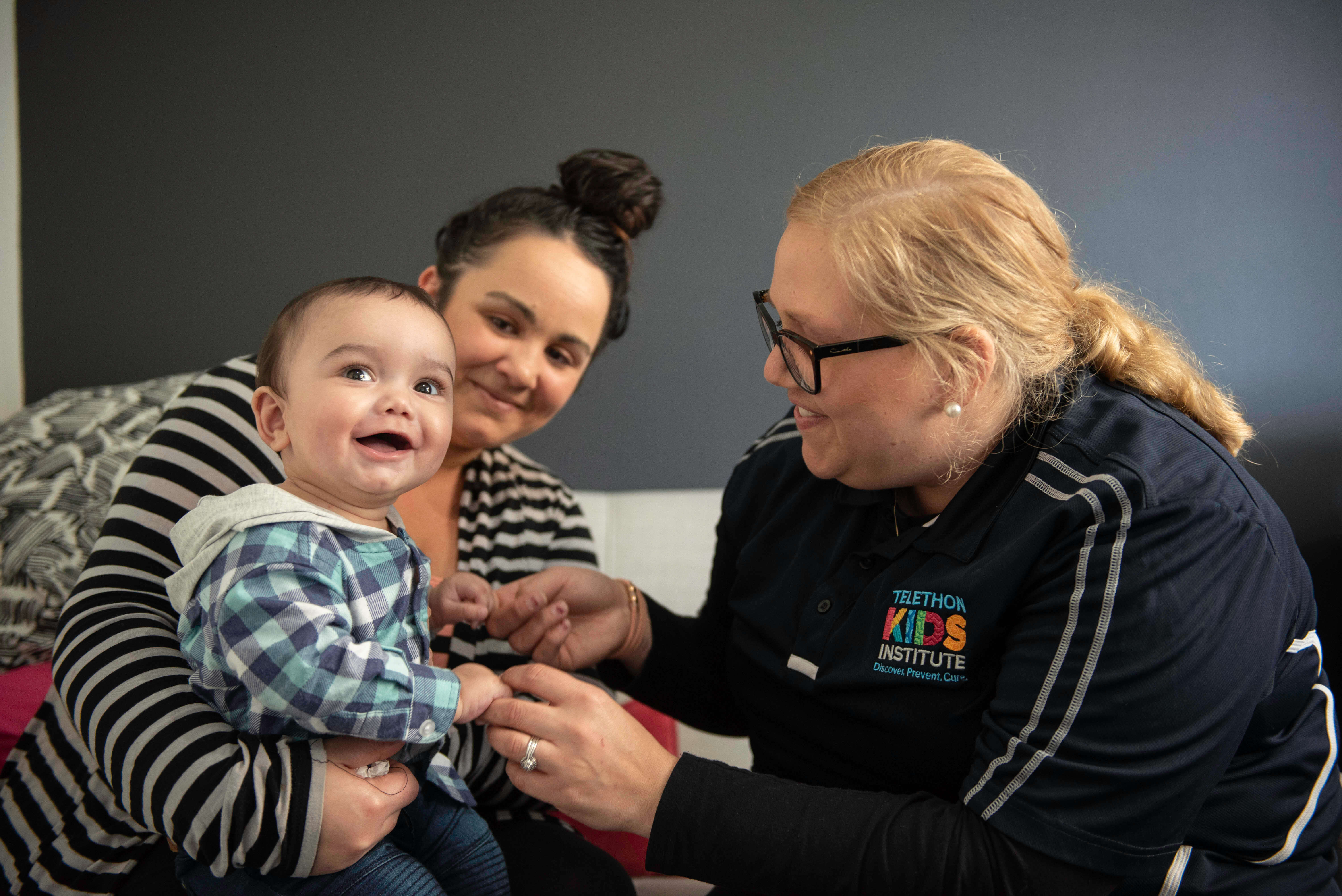Search
News & Events
New vaccine promises fewer needlesPerth researchers are calling for help from Perth toddlers and their parents to participate in a new project that aims to reduce the number of injections

News & Events
NHMRC funding awarded to support child health researchThe Kids Research Institute Australia researchers have been awarded more than $10 million in research funding from the National Health and Medical Research Council (NHMRC).

News & Events
Decades-old work picked up by Google’s DeepMind leads to global scientific breakthroughA researcher's work from 20 years ago has helped to crack one of biology’s biggest mysteries.

News & Events
Leading disease modeller appointed inaugural Fiona Stanley Chair of Child Health ResearchThe Kids Research Institute Australia and The University of Western Australia are proud to announce the appointment of the inaugural Fiona Stanley Chair of Child Health Research, Professor Melissa Penny.

News & Events
Call for national newborn screening for little-known CMV virusWestern Australian researchers advocate for a national newborn screening program for congenital CMV to prevent hearing loss and related disabilities in infants.

News & Events
New meningococcal strains bring increased risk in WAA new study has confirmed the changing pattern of meningococcal disease in Western Australia.

News & Events
New ear health study music to the ears of Aboriginal childrenWait times for Aboriginal children suffering ear infections could be reduced to less than four weeks thanks to a new The Kids Research Institute Australia research project

News & Events
Skin infections send eight out of every 100 Aboriginal babies to hospitalIn a WA first, researchers from The Kids Research Institute Australia have shown that Aboriginal babies are 22.5 times more likely to be treated for skin infections than non-Aboriginal babies.

News & Events
The Kids Research Institute Australia researcher recognised for saving children in PNGClinical Associate Professor Deborah Lehmann has been recognised for her dedication to reducing the burden of infectious diseases in Papua New Guinea (PNG) with an award supporting research in the Western Pacific named in her honour.

News & Events
Wesfarmers tops 2019 GivingLarge ReportThe major funder of the Wesfarmers Centre of Vaccines and Infectious Diseases based at The Kids Research Institute Australia has been recognised as Australia’s most generous giver.
